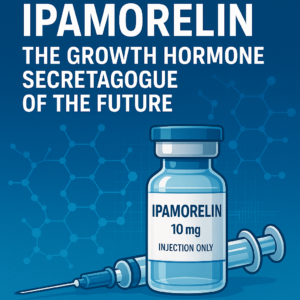Understanding Kratom and Its Impact on Your Liver
Kratom has gained popularity in recent years for its potential benefits, including pain relief and mood enhancement. However, many individuals still harbor concerns about its safety, especially regarding liver health. Understanding the relationship between kratom and liver function can empower users to make informed decisions.
What is Kratom?
Kratom is derived from the leaves of the Mitragyna speciosa tree, native to Southeast Asia. Traditionally used in cultures like those of Thailand and Malaysia, the leaves have psychoactive properties. Users consume kratom in various forms: powders, capsules, and teas. The active compounds, mitragynine and 7-hydroxymitragynine, interact with the body’s opioid receptors, which can produce effects similar to both stimulants and sedatives.
While kratom can offer various benefits, it also carries risks. As it gains popularity in Western countries, awareness about its side effects, particularly concerning liver health, has become increasingly important.
How Does Kratom Affect the Liver?
When we consume substances, our liver plays a crucial role in metabolizing them. Kratom’s active compounds undergo hepatic metabolism, meaning they pass through the liver before entering the bloodstream. Some studies suggest that, like any other substance, kratom could potentially impact liver function.
The liver metabolizes substances to detoxify them, but how does kratom fare? Early research indicates that kratom can influence liver enzymes, which could indicate stress or damage to liver cells. It’s crucial to understand how kratom might affect various liver functions to ensure safety.
Potential Risks to Liver Health
While kratom can have various benefits, it also presents risks. Here are some potential liver-related risks associated with kratom consumption:
- Elevated Liver Enzymes: Consuming kratom might lead to an increase in liver enzymes in some users.
- Hepatotoxicity: Kratom has been implicated in causing liver inflammation, particularly with high or prolonged use.
- Drug Interactions: If combined with other substances, kratom can create a cumulative toxic effect on the liver.
Researchers continue to explore these risks, but existing evidence suggests keeping your kratom consumption in moderation to mitigate potential hazards.
Symptoms of Liver Damage
Recognizing liver damage is essential for anyone considering or currently using kratom. Some signs may include:
- Jaundice: Yellowing of the skin and eyes.
- Dark Urine: A darker color than usual can indicate liver issues.
- Abdominal Pain: Discomfort, particularly in the upper right quadrant of the abdomen.
- Fatigue: Unexplained tiredness can signal underlying liver problems.
If you experience any of these symptoms, consult a healthcare provider immediately. Early intervention could prevent further complications.
Responsible Kratom Use
If you choose to use kratom, responsible consumption can go a long way in minimizing risks. Here are several tips:
- Start Low, Go Slow: Always begin with a low dose. Gradually increase it if necessary, but monitor for adverse effects.
- Stay Informed: Research reputable sources and consult healthcare professionals knowledgeable about kratom.
- Limit Duration: Avoid prolonged use. Taking breaks can help reduce strain on your liver.
- Be Cautious with Mixes: Avoid combining kratom with other substances, especially those known to affect the liver.
Current Research on Kratom and Liver Health
Research on kratom is still in its infancy. However, some studies indicate potential hepatotoxic effects when used excessively or in combination with alcohol or pharmaceuticals. For instance, a case study published in a peer-reviewed journal noted acute liver injury linked to kratom use. Though rare, these incidents reinforce the need for caution.
A comprehensive review of available literature shows that while some users might experience mild effects, others may develop significant liver-related issues. Researchers advocate for more extensive studies to fully understand kratom’s impacts on liver health.
Alternatives to Kratom for Pain Relief
If you’re considering alternatives to kratom, a variety of options are available. Here’s a list of potential substitutes:
- Turmeric: This spice has anti-inflammatory properties and may help alleviate pain.
- CBD Oil: Known for its potential therapeutic effects without the psychoactive properties of THC.
- Magnesium: Some users find relief from muscle and joint pain with magnesium supplementation.
- Acupuncture: This traditional Chinese medicine practice offers pain relief and promotes healing.
These alternatives might present fewer risks to liver health compared to kratom. Always consult a healthcare professional before making changes to your regimen.
Educating Yourself on Kratom Safety
Knowledge is power. Becoming well-informed about kratom can help users make decisions aligned with their health goals. Here are strategies for staying informed:
- Follow Reliable Sources: Seek out information from trustworthy health websites, academic journals, and professionals knowledgeable about kratom.
- Read User Testimonials: Community forums can provide insights into the experiences of others, but be critical of the information presented.
- Consult Healthcare Providers: Always discuss any new supplement or change in diet with a healthcare professional, especially if you have pre-existing conditions.
Conclusion: Making an Informed Choice
Choosing to use kratom is a personal decision that involves weighing potential benefits against risks, especially concerning liver health. Responsible use, staying informed, and consulting healthcare professionals can help you navigate the complexities of kratom safely.
The liver is a vital organ, playing a critical role in detoxifying substances. Therefore, prioritizing liver health when considering kratom consumption is non-negotiable. Always monitor your body and remain vigilant for symptoms of distress.
FAQs
-
Is kratom safe for everyone?
Kratom is not suitable for everyone. Those with existing liver issues or certain health conditions should avoid it. -
How much kratom can I take safely?
The safe dosage varies significantly per individual. Starting with low doses and monitoring effects is best. -
Are there specific strains of kratom that are safer?
All kratom strains can pose risks. Yellow strains are often seen as milder, but safety still depends on personal health backgrounds. -
Can I use kratom long-term without liver damage?
Long-term use can increase the risk of liver damage, especially without breaks. Consult a healthcare provider for personalized advice. -
What should I do if I suspect liver damage from kratom?
Seek medical advice immediately. Early intervention is vital for treating liver issues. -
Does kratom interact with other medications?
Yes, kratom can interact with other medications, potentially heightening or reducing their effects. Always consult healthcare professionals about your specific medications. -
Can I drink alcohol while using kratom?
Combining alcohol and kratom can increase the risk of liver damage and should be avoided. -
Is there any research demonstrating kratom’s effects on the liver?
Current research suggests kratom may impact liver health, but more studies are needed to fully understand these effects. -
What are the best practices for quitting kratom?
Gradual reduction is preferable to prevent withdrawal symptoms. Consult a healthcare provider to create a tapering plan. -
Can herbal teas help with liver health?
Certain herbal teas, like dandelion tea, can support liver health, but always check with a healthcare professional before starting any new regimen.







